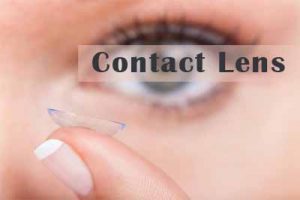- Home
- Editorial
- News
- Practice Guidelines
- Anesthesiology Guidelines
- Cancer Guidelines
- Cardiac Sciences Guidelines
- Critical Care Guidelines
- Dentistry Guidelines
- Dermatology Guidelines
- Diabetes and Endo Guidelines
- Diagnostics Guidelines
- ENT Guidelines
- Featured Practice Guidelines
- Gastroenterology Guidelines
- Geriatrics Guidelines
- Medicine Guidelines
- Nephrology Guidelines
- Neurosciences Guidelines
- Obs and Gynae Guidelines
- Ophthalmology Guidelines
- Orthopaedics Guidelines
- Paediatrics Guidelines
- Psychiatry Guidelines
- Pulmonology Guidelines
- Radiology Guidelines
- Surgery Guidelines
- Urology Guidelines
Contact lens wearers more prone to Keratitis that can lead to blindness

So beware contact lens wearers! The study published in the British Journal of Ophthalmology reports an outbreak of a rare but preventable eye infection that can cause blindness in contact lens wearers. The research led by UCL and Moorfields Eye Hospital found a threefold increase in Acanthamoeba keratitis since 2011.
Acanthamoeba keratitis is an eye disease that causes the front surface of the eye, the cornea, to become painful and inflamed, due to infection by Acanthamoeba, a cyst-forming microorganism. The most severely affected patients (a quarter of the total) have less than 25% of vision or become blind following the disease and face prolonged treatment. Overall 25% of people affected require corneal transplants to treat the disease or restore vision.
The findings of the study report that reusable contact lens wearers with the eye infection are more likely to have used an ineffective contact lens solution, have contaminated their lenses with water or reported poor contact lens hygiene.
"This infection is still quite rare, usually affecting 2.5 in 100,000 contact lens users per year in South East England, but it's largely preventable. This increase in cases highlights the need for contact lens users to be aware of the risks," said the study's lead author, Professor John Dart.
The researchers collected incidence data from Moorfields Eye Hospital, from 1985 to 2016. They found an increase dating from 2000-2003, when there were eight to 10 cases per year, to between 36-65 annual cases in the past few years.
Read Also: New Glowing contact lens – A potential solution for diabetic retinopathy
Besides this, the researchers conducted a case-control study of people who wear reusable contact lenses on a daily basis comparing those who had a diagnosis of Acanthamoeba keratitis to those who had come into Moorfields A&E for any other reason, from 2011 to 2014.
The case-control study included 63 people with Acanthamoeba keratitis and 213 without. Through the questionnaire filled by them, the researchers found that the risk of developing the disease was more than three times greater amongst people with poor contact lens hygiene, people who did not always wash and dry their hands before handling their lenses, and for people who wore their contacts while in swimming pools or hot tubs. Showering and face washing while wearing contact lenses are also likely to be risk factors.
"People who wear reusable contact lenses need to make sure they thoroughly wash and dry their hands before handling contact lenses, and avoid wearing them while swimming, face washing or bathing. Daily disposable lenses, which eliminate the need for contact lens cases or solutions, may be safer and we are currently analyzing our data to establish the risk factors for these," said Professor Dart.
The authors concluded that improving contact lens and hand hygiene, avoiding contact lens contamination with water and use of effective contact lens disinfection solutions, or daily disposable contact lens, will reduce the incidence of Acanthamoeba keratitis. In the longer-term, water avoidance publicity for contact lens users can be expected to reduce the incidence further.
For reference log on to https://bjo.bmj.com/content/early/2018/09/19/bjophthalmol-2018-312544

Disclaimer: This site is primarily intended for healthcare professionals. Any content/information on this website does not replace the advice of medical and/or health professionals and should not be construed as medical/diagnostic advice/endorsement or prescription. Use of this site is subject to our terms of use, privacy policy, advertisement policy. © 2020 Minerva Medical Treatment Pvt Ltd